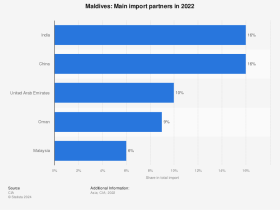
Electronics Manufacturing Companies in Kenya
Kenya has a growing electronics manufacturing sector, driven by increasing demand for electronic products, technological advancements, and government support for local industries. While the country still relies on imports for many electronic products, several local companies are making significant strides in manufacturing and assembling electronics. Below is an overview of some key electronics manufacturing companies in Kenya.
1. Synkron International Limited
Synkron International Limited is a Kenyan-based electronics company that specializes in manufacturing and assembling electrical and electronic devices. The company produces a range of products, including power stabilizers, solar inverters, and uninterruptible power supplies (UPS). Synkron International is focused on providing energy solutions for both residential and industrial use, contributing to Kenya’s growing renewable energy sector.
2. Kenya Electrical and Electronics Ltd (KEEL)
KEEL is among the pioneers in the Kenyan electronics manufacturing industry. The company specializes in assembling electrical products such as circuit breakers, electrical panels, and wiring accessories. KEEL supplies its products to both the local and regional markets, playing a crucial role in Kenya’s industrial and infrastructure development.
3. Solinc East Africa
Solinc is Kenya’s first solar panel manufacturing company, located in Naivasha. The company manufactures high-quality solar photovoltaic (PV) panels for both residential and commercial use. Solinc contributes significantly to the renewable energy sector by promoting solar power as an alternative energy source. With Kenya’s push towards clean energy, Solinc plays a key role in making solar technology more accessible to households and businesses.
4. M-KOPA Solar
M-KOPA Solar is a leader in off-grid solar solutions in Kenya and East Africa. While the company mainly focuses on assembling solar-powered devices such as solar home systems, radios, and televisions, it also integrates smart technology into its products. M-KOPA’s pay-as-you-go solar model has revolutionized energy access for low-income households in Kenya, allowing them to afford electronic appliances through flexible payment plans.
5. Optimum Electricals Ltd
Optimum Electricals Ltd is another notable company in the Kenyan electronics manufacturing sector. It focuses on producing electrical cables, extension sockets, and other household electrical accessories. The company serves a wide market, including contractors, government institutions, and retailers.
6. Taifa Laptops (Moi University’s Taifa Laptop Project)
Taifa Laptops is a Kenyan initiative launched by Moi University in collaboration with the government to promote local computer assembly. The project aims to produce affordable laptops for students and professionals, reducing dependence on imported brands. Taifa Laptops represent a step forward in Kenya’s ambition to develop its ICT and electronics manufacturing sector.
7. East African Cables
While primarily known for manufacturing electrical cables, East African Cables plays an essential role in the broader electronics industry by supplying high-quality wiring solutions. The company produces copper and aluminum cables used in power transmission, telecommunication, and industrial applications.
Challenges Facing Electronics Manufacturing in Kenya
Despite the presence of these manufacturers, Kenya’s electronics industry faces several challenges, including:
High production costs: Importation of raw materials and high energy costs increase production expenses.
Limited skilled labor: There is a need for more training programs to equip workers with technical expertise.
Competition from imports: Cheaper electronic imports from China and other countries dominate the Kenyan market.
Infrastructure limitations: Inadequate manufacturing infrastructure slows down the industry’s growth.
Conclusion
Kenya’s electronics manufacturing sector is still in its early stages, but it has significant potential for growth. With government support, increased investment, and innovation, the country can develop a competitive electronics industry. Companies such as Solinc, M-KOPA, and Taifa Laptops are paving the way for local manufacturing, especially in the renewable energy and ICT sectors. As technology continues to advance, Kenya has the opportunity to expand its electronics industry and reduce reliance on imports.


Leave a Reply